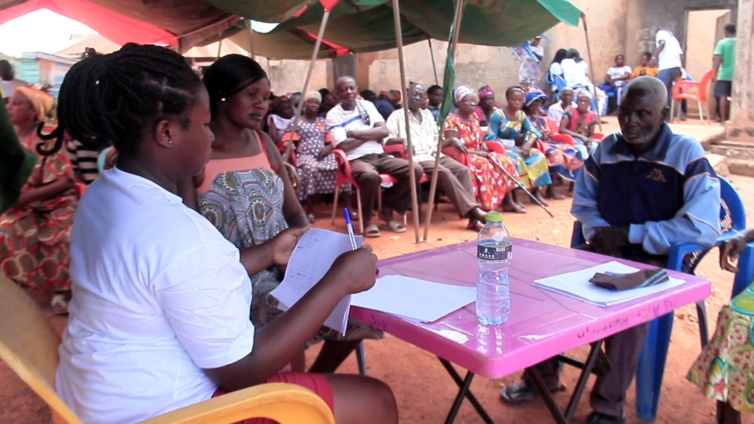About 600 residents from Kwapanin near Offinso and surrounding communities in the Ashanti region underwent health screenings, including tests for sexually transmitted infections (STIs), hepatitis B, malaria, blood pressure, and skin infections - aimed to enhance their well-being, emphasizing the connection between individual health and environmental protection.
Medication has also been provided as needed, and health professionals seized the opportunity to educate community members on maintaining healthy lifestyles for longevity and reduced healthcare expenses.
The health screening initiative was organized by the environmental-oriented organization, the Institute of Nature and Environmental Conservation (INEC) Ghana - committed to conservation activities in the communities. The underlying belief is that a healthy community is better equipped to protect a healthy environment.

David Kwarteng, Executive Director of INEC Ghana, emphasized the importance of regular health screenings in rural communities for early detection, diagnosis, and treatment of health issues, aligning with the organization's environmental and climate change mitigation efforts.
“The best way to give back to the communities is to ensure that, they are healthy, and fit enough to undertake environmental protection,” Mr. Kwarteng said.
Over the past 18 months, INEC Ghana has been actively engaged in environmental programs, including the planting of indigenous trees to restore ecosystems affected by degradation.
Addressing the alarming rate of environmental degradation and the reality of climate change, Mr. Kwarteng called for collective efforts from Ghanaians to make positive contributions to the environment, thereby reducing health issues associated with climate change effects.
Residents from various communities expressed appreciation for the initiative, highlighting the importance of routine health screenings to monitor their well-being as they actively contribute to environmental conservation.

Felicity Afosaah, a Kwapanin resident, commended the organization for conducting the screenings. While acknowledging the presence of a Community Health Planning Services (CHPS) compound in the community, she highlighted the importance of additional health screening programs accessible to the locals.
“We only have one clinic here, and not everyone can easily access it for medical care. Initiatives like this health screening are beneficial for residents like us,” stated Madam Afosaah.
INEC has already planted 100 hectares of trees in these communities as part of the organization's restoration program.
Community members are actively engaging with the program, and initiatives like the screening exercise are anticipated to further strengthen this relationship, especially as the global community encourages more carbon sequestration programs following the recently concluded COP28.
Latest Stories
-
Accra: Queenmother killed at naming ceremony in Gbawe
7 minutes -
Security agencies donate GH¢1m to MahamaCares
8 minutes -
NPP urged to prioritise reforms over early primaries – CDD Fellow cautions
15 minutes -
Electric Cars: DriveEVGH showcases next‑gen EVs at Ecobank-JOYNEWS Habitat Fair at Achimota Mall
39 minutes -
NPP Race: The party needs deep reflection on the path it intends to pursue – Prof. Bokpin
39 minutes -
NPP Race: No counter motion on early primaries at NEC meeting – Haruna Mohammed
44 minutes -
Day 2 of the Ecobank-JOYNEWS Habitat Fair at Achimota Mall has the BEST DEALS to get you home!
57 minutes -
Cargill provide Agro-Processing Equipment to Women in Cocoa-growing Communities
1 hour -
Cabinet approves Mahama Cares Bill
2 hours -
NYA CEO Osman Ayariga reaffirms government’s commitment to youth empowerment
2 hours -
Galamsey: No justification can excuse the extent of the destruction – Rev. Fr. Quaicoe
2 hours -
Gov’t officials involved in galamsey will face full force of the law – Shamima Muslim reiterates
2 hours -
Early presidential primaries isn’t new to NPP – Osae-Kwapong
2 hours -
Academic City renews galamsey dialogue with call for action and innovation
2 hours -
Scars of Hooliganism: How hooligans left Mercy Tagoe with a bloody nose
2 hours

